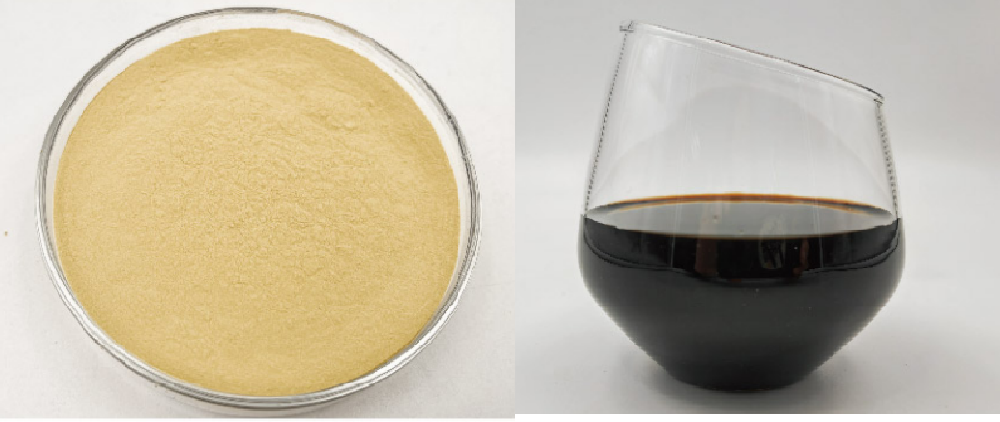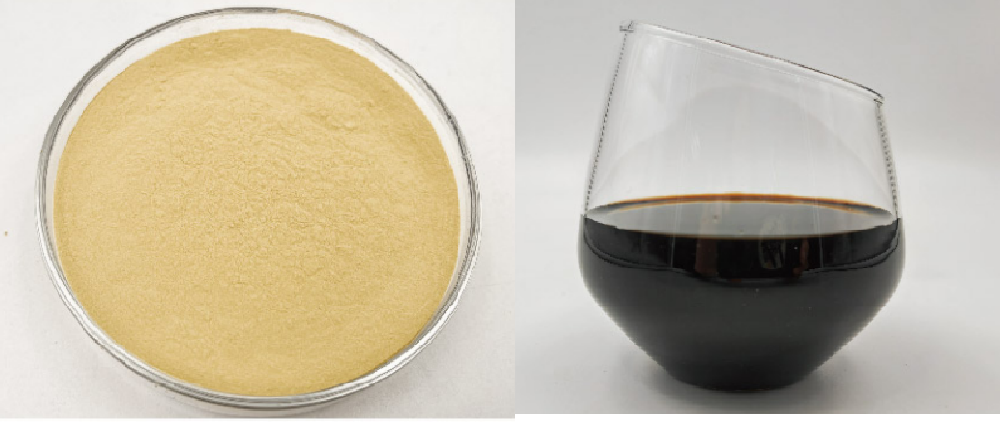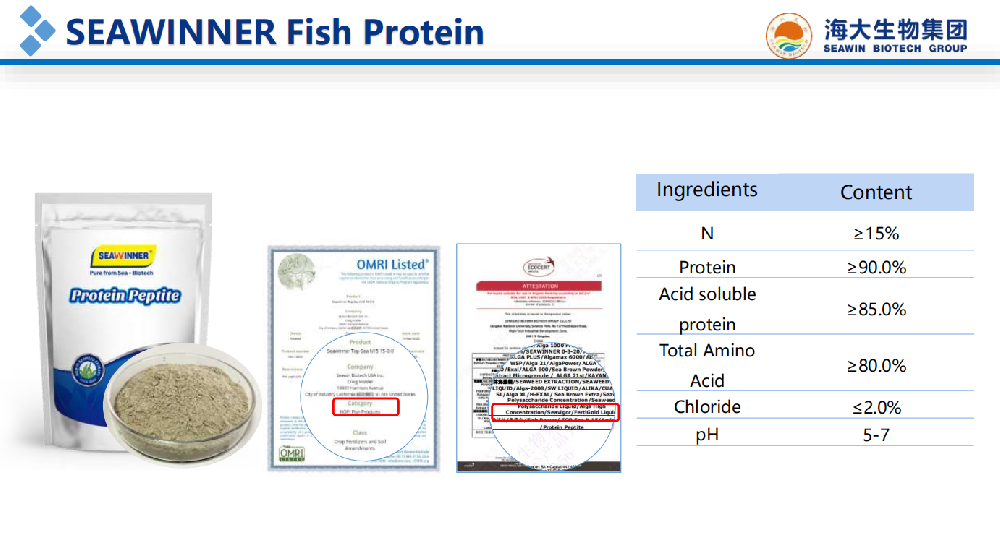Basic Differences Between Amino Acids and Protein Peptides
Amino acids are the basic building blocks of proteins. Plants absorb amino acids to support their growth, metabolism, and resistance. However, due to the incomplete amino acid profile, amino acid products often fail to provide plants with a comprehensive nutritional profile. While they may deliver quick results, amino acids generally lack the ability to provide long-term support for plant health. Products with higher levels of free amino acids may promote faster nutrient absorption but often compromise other essential nutrients, leading to suboptimal overall plant health and resistance.
On the other hand, protein peptides, which are composed of multiple amino acids linked by peptide bonds, offer more advanced benefits. Fish protein peptide (derived from cod fish skin) has a molecular weight range of 300-700 Daltons and contains 2-5 amino acid residues, making it highly bioactive and nutritionally valuable. Compared to amino acids, protein peptides can provide a more complete nutrient profile for plants. This results in better long-term effects, including promoting plant growth, enhancing resistance, improving soil fertility, and ensuring more sustained nutrient absorption.
Advantages of Fish Protein Peptide
Seawin produces fish protein peptide from cod fish skin, with a molecular weight range of 300-700 Daltons. It contains 18 types of amino acids, with a total amino acid content of up to 80%, and organic nitrogen reaching 15%. While the free amino acid content is under 10%, its highly active peptide structure and diverse amino acid profile offer significant advantages in plant nutrition. Specifically, the benefits of fish protein peptide include:
1. Comprehensive Amino Acid Supply
Although the free amino acid content in fish protein peptide is lower than in amino acid-based products, the peptide structure offers more comprehensive and long-lasting amino acid support. These amino acids help plants not only to grow quickly but also to strengthen their resistance and recovery capabilities. Protein peptides support plants in a way that amino acids alone cannot.
2. Excellent Soil Improvement Effects
Protein peptides like fish protein peptide can effectively stimulate soil microorganisms, improving the physical and chemical properties of the soil. This is particularly beneficial in saline-alkaline and poor soils, where fish protein peptide helps plants absorb nutrients more effectively and improves soil fertility and structure.
3. Long-term Effects and Sustained Support
Unlike amino acids, fish protein peptide provides long-term, consistent nutritional support throughout the entire growth cycle. It helps plants withstand various physiological and environmental stresses, delivering better results for sustainable agriculture.
Why Choose Fish Protein Peptide for Sustainable Agriculture?
While amino acid products provide quick results in plant nutrition, plants in modern agriculture need more than just fast fixes. They require comprehensive, long-term nutritional support, especially when facing changing environmental conditions and complex soil conditions. Fish protein peptide, with its rich amino acid profile, low free amino acid content, excellent soil improvement effects, and lasting nutritional support, is a superior choice for agriculture.
Whether for plant growth, resistance, or soil improvement, fish protein peptide stands out for its unique advantages. As agriculture moves toward more sustainable practices and environmentally conscious methods, choosing fish protein peptide is a crucial step towards achieving higher crop yields, better quality, and improved sustainability.
Fish Protein Peptide: Strengthening Your Agriculture for Sustainable Growth
In summary, fish protein peptide offers a more comprehensive, long-lasting, and effective nutritional solution compared to traditional amino acids. By choosing fish protein peptide, you are taking a crucial step in optimizing plant growth, enhancing soil health, and promoting long-term sustainability in your agricultural practices.




